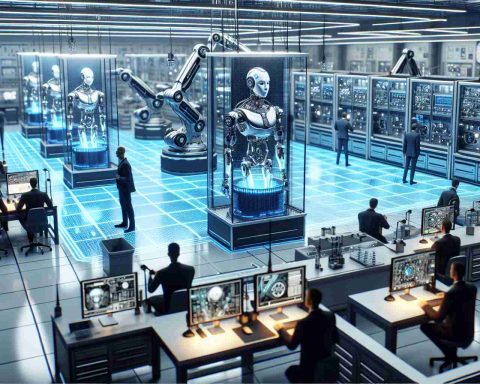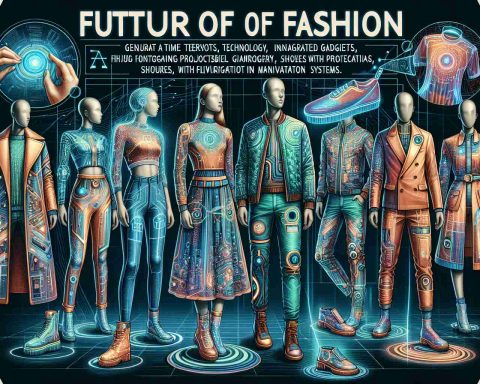Shenzhen’s BYD, known for its electric vehicles, is shifting gears into the robotics sector. The company has made headlines with a recent job posting on WeChat, aiming to recruit technical experts in sensory algorithms, robotics, and software engineering. This move signals an ambitious expansion into the field of embodied intelligence (EI), a cutting-edge area essential for machine responsiveness and adaptability.
While BYD has not disclosed the number of positions available, the recruitment campaign focuses on attracting recent graduates with advanced degrees in disciplines such as mechanics, automation, and computation. Job opportunities are set to be based in key cities like Shenzhen, Hefei, and Changsha. This strategic hiring initiative aligns with BYD’s commitment to enhancing its robotics capabilities, which include various types of robots from collaborative designs to humanoid forms.
The company’s founder, Wang Chuanfu, has ambitious plans to invest approximately $13.7 billion into merging artificial intelligence with automotive and robotics solutions. BYD’s increasing focus on robotics comes amid China’s rapid embrace of automation technologies, as it strives to become a global leader in this space, outpacing traditional industrial powerhouses.
Amid market fluctuations, including a recent drop in stock prices, BYD’s investment in robotics represents a promising trajectory, looking to diversify its offerings beyond electric vehicles. With substantial resources dedicated to this innovation, BYD is ready to make a significant mark in the future of automation and robotics.
BYD’s Bold Move: Transforming from Electric Vehicles to Robotics
Shenzhen’s BYD Ventures into Robotics
Shenzhen-based BYD, predominantly recognized for its advancements in electric vehicles (EVs), is strategically venturing into the robotics sector. This transition highlights the company’s commitment to innovation and its adaptability in an evolving technological landscape.
Recruitment Drive for Robotics Experts
In a recent initiative, BYD launched a recruitment campaign via WeChat, targeting individuals with expertise in sensory algorithms, robotics, and software engineering. This significant hiring effort is aimed at attracting recent graduates holding advanced degrees in mechanics, automation, and computation. With opportunities primarily in cities like Shenzhen, Hefei, and Changsha, BYD is on the lookout for fresh talent to bolster its robotics division.
Investment in Artificial Intelligence and Robotics
The founder of BYD, Wang Chuanfu, has unveiled plans to invest around $13.7 billion into integrating artificial intelligence (AI) within its automotive and robotics frameworks. This ambitious budget underscores BYD’s vision of creating intelligent robotic systems that enhance machine responsiveness and adaptability, known as embodied intelligence (EI). This investment comes at a time when China is rapidly adopting automation technologies, positioning itself at the forefront of global robotics development.
Pros and Cons of BYD’s Robotics Expansion
Pros:
– Diversification: Expanding into robotics allows BYD to diversify its product lines beyond EVs, potentially stabilizing income during market fluctuations.
– Competitive Edge: Merging AI with robotics applications positions BYD as a strong competitor in the automation market.
– Employment Opportunities: The recruitment of new talent can drive innovation and enhance the company’s technological capabilities.
Cons:
– Market Risks: Entering a new sector can pose significant risks, especially if the robotics market experiences volatility.
– Investment Return: High initial investment with uncertainty regarding long-term returns can strain resources.
Future Insights and Predictions
As BYD amplifies its focus on robotics, market analysts predict that the company could emerge as a leader in the robotics field, leveraging its existing experience in automation from its automotive sector. The integration of AI technologies may allow for the development of advanced robotic systems suitable for various industries, from manufacturing to logistics.
Sustainability and Security Aspects
Incorporating sustainable practices is crucial as BYD navigates its expansion into robotics. The focus on developing eco-friendly robotic solutions could set a new industry standard, aligning with global sustainability goals. Security also remains a paramount concern, particularly concerning AI and robotics; therefore, employing robust cybersecurity measures will be essential as BYD deploys new technologies.
Conclusion
BYD’s strategic shift from electric vehicles to expertise in robotics and AI signifies a pivotal moment for the company. By fostering innovation and addressing industry demands, BYD aims to solidify its place as a key player in the future of robotics and automation. For more information, visit BYD.



















